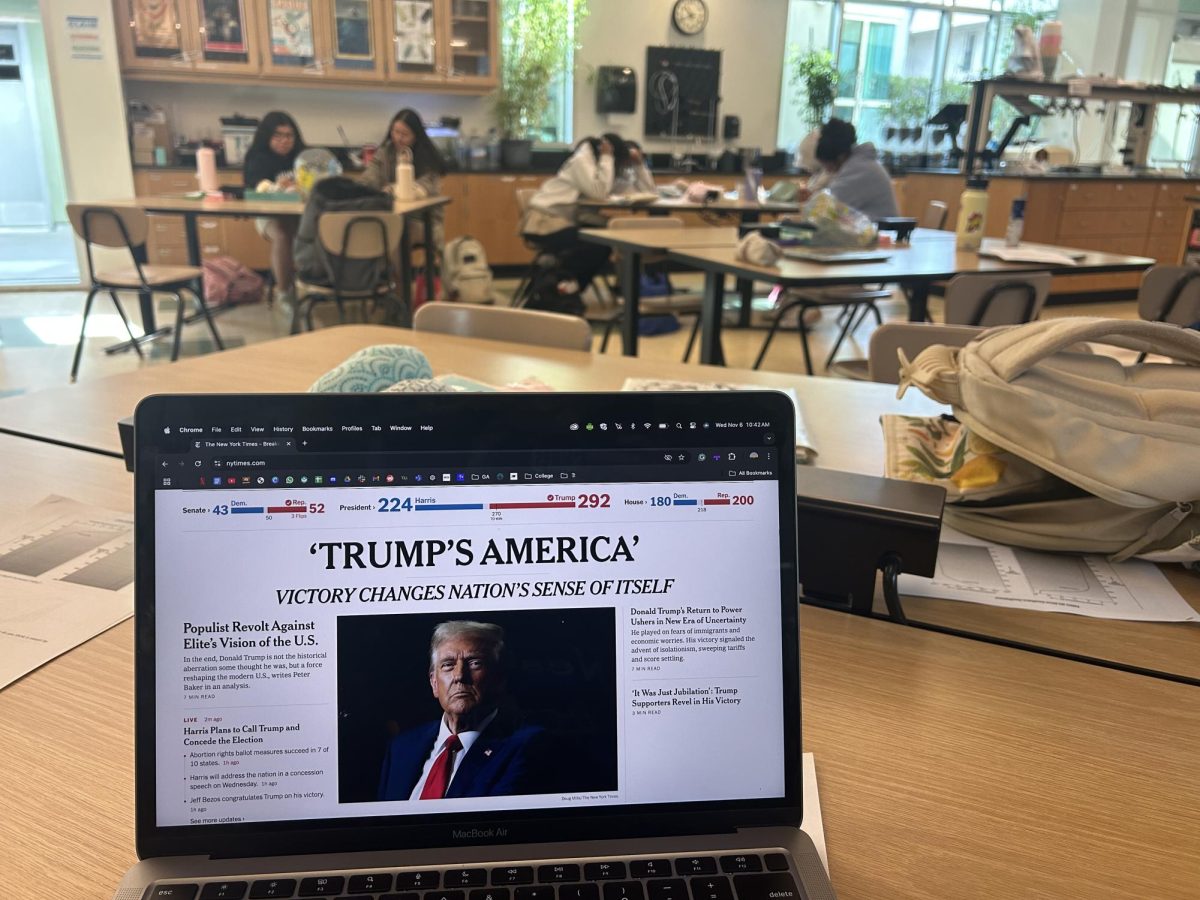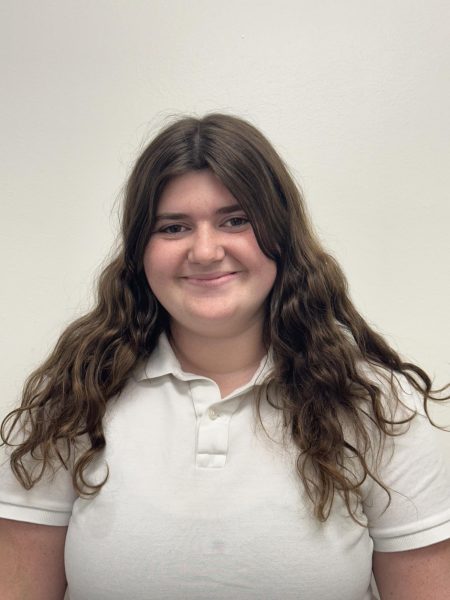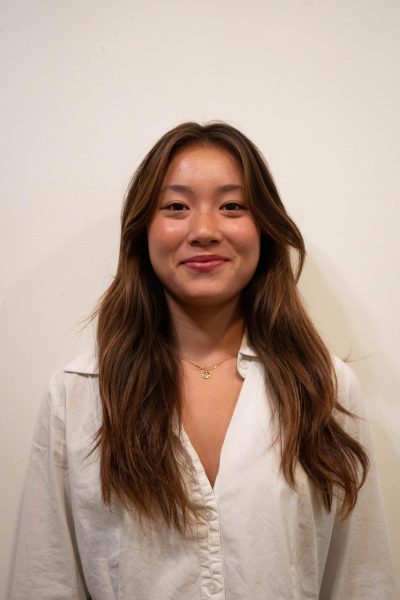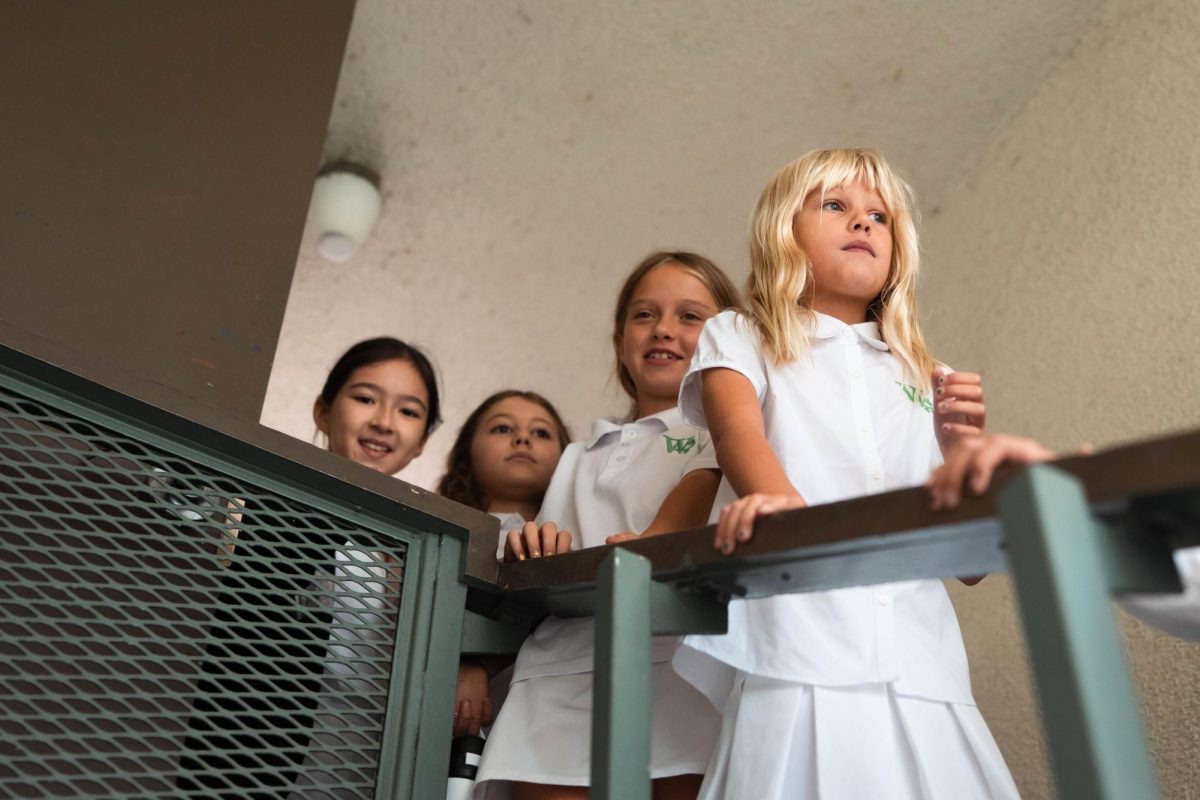Upper School lunch on Wednesday, November 6, was filled with sadness and disappointment. Several faculty members hid their faces behind large sunglasses, some with eyes welling with tears, while students’ smiles disappeared as they came to terms with the reality of their next four years. Donald Trump had been elected the 47th President of the United States of America, marking the first time a convicted felon held office.
Just 24 hours earlier, the Westridge campus was vibrant with optimism. Teachers—and even some eligible seniors—strutted through Ayrshire Courtyard and Madeline Court with “I Voted” stickers while other students eagerly discussed the highly anticipated 2024 presidential election, which was actively underway with results set to start coming in within hours.
While Westridge is a non-partisan institution, its location in the progressive Los Angeles county and its mission as an all-girls school focused on women’s empowerment contribute to a left-leaning identity and a general support for Kamala Harris’ campaign.
However, dreams of a female leader in the White House quickly disappeared on election night. Though some forecasted election results to take days, by 7 p.m., the New York Times put Trump’s odds of victory at just around 80%. Three hours later, at 10 p.m., his odds increased to 93%.

By 11 p.m., the ultra-competitive battleground state of Pennsylvania—where President Biden beat President-Elect Donald Trump by over 75,000 votes in 2020—had been called, with Donald Trump winning its 20 electors. Around 2:30 a.m. the following day, the Associated Press called Wisconsin in Trump’s favor, earning him 10 additional electors and a seat back in the Oval Office.
Coming to school just hours after Donald Trump reached the necessary 270 electors to capture the presidency, many teachers adjusted their curriculum accordingly, centering discussions about the election and students’ emotions or simply scheduling student work days.
Upper School Spanish Teacher Dr. Vicki Garrett provided snacks and facilitated conversations in her classes about the election, allowing students to speak English if necessary. In Caroline S. ’25’s Advanced Cultural Studies in Spanish class, a group of ten upperclassmen and Dr. Garrett took the time to reflect on the implications of Trump’s presidency, not only as it concerned their own lives but also in relation to Latin American politics, the focus of the class.
Caroline described her reaction on November 6 as “devastated” and “disgusted.” Despite her heightened emotions that day, she appreciated her teacher creating space for students’ voices. “I think [Dr. Garrett’s] willingness to pivot her lesson plan according to her students’ needs demonstrates an empathy more teachers ought to have. Personally, I thought our conversations in class were comforting,” Caroline said.
In Ms. Sandy de Grijs’ sophomore History classes, she intentionally scheduled a work day weeks in advance, knowing the potential turmoil that day would bring.
The day after the results came in, a grim feeling settled over E Block History. Many students entered with puffy eyes and worn-out faces. Ms. de Grijs walked in with a downcast expression and, reading the energy in the room, shifted her lesson to suit the student’s needs and mental state. “We can talk, you can work, go for a walk, pretend to work, anything that you need,” she told her students.
Molly G. ’27, one of Ms. de Grijs’ students, expressed her appreciation for the workday. “It was great to be able to have more time to work on my paper because that Wednesday I was processing everything and couldn’t really focus on work.” She continued, “[It was also great] just that she [Ms. de Grijs] recognized that we were affected by the election.”
Similarly, the Upper School administration offered support and acknowledged the impact that the results of the election had on many students and teachers. In an email to the Upper School, the new Director of Upper School Dr. Melanie Arias wrote, “Please reach out to us in the Upper School office if you need anything or want to connect. I am so thankful to be here at Westridge—your voices and forward-thinking inspire me.”
Additionally, Kali Spicer, Dr. Arias’ Administrative Assistant, set up a station for students to prepare tea and hot chocolate.The Upper School office also organized an opportunity for students to watch Vice President Harris’ concession speech, which was set to take place during the second half of Upper School lunch.

Starting at 1 p.m., approximately 100 students and faculty sat in the amphitheater together to watch NBC News broadcast Harris’ appearance and speech at Howard University—her alma mater—in Washington D.C. Addressing young viewers like the students at Westridge, Vice President Harris said, “To the young people who are watching, it is okay to feel sad and disappointed. But please know it’s going to be okay.”
She continued, “The important thing is don’t ever give up. Don’t ever give up. Don’t ever stop trying to make the world a better place.”
Her message resonated with many students, including junior Audrey L. “I thought she did a good job of inspiring hope instead of grief, which made me feel a lot better about the future in general, but more specifically about equality in our country,” said Audrey.
In the weeks and months leading up to President-Elect Donald Trump’s second inauguration on January 20, 2025, the Westridge campus will continue to grapple with its future and obligations as American citizens.
Reflecting on Harris’ concession speech, senior Audrey B. said, “The quote that I adored and that gave me goosebumps was, ‘Only when it’s dark enough can you see the stars.’” Audrey continued, “This, to me, symbolized hope and assurance that with hard work and advocacy, we can combat Trump’s administration.”




























![Dr. Zanita Kelly, Director of Lower and Middle School, pictured above, and the rest of Westridge Administration were instrumental to providing Westridge faculty and staff the support they needed after the Eaton fire. "[Teachers] are part of the community," said Dr. Kelly. "Just like our families and students."](https://westridgespyglass.org/wp-content/uploads/2025/03/dr.-kellyyy-1-e1748143600809.png)

























